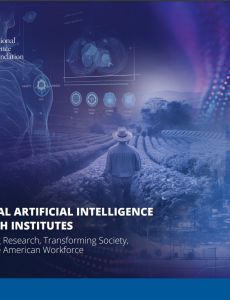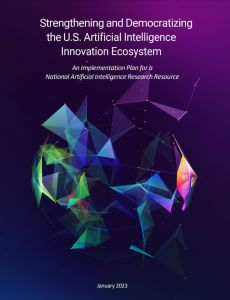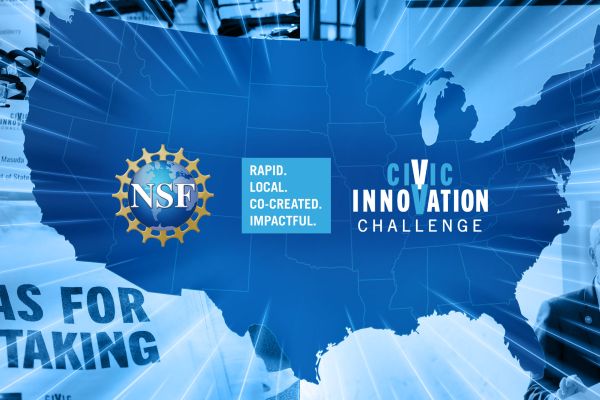The U.S. National Science Foundation has invested in foundational artificial intelligence research since the early 1960s, setting the stage for today’s understanding and use of AI technologies.
AI-driven discoveries and technologies are transforming Americans' daily lives — promising practical solutions to global challenges, from food production and climate change to healthcare and education.
The growing adoption of AI also calls for a deeper understanding of its potential risks, like the amplification of bias, displacement of workers, or misuse by malicious actors to cause harm.
As a major federal funder of AI research, NSF advances AI breakthroughs that push the frontiers of knowledge, benefit people, and are aligned to the needs of society.
 On this page
On this page
What is artificial intelligence?
How does AI affect our daily lives? How does it work in simple terms? Can we trust AI chatbots? In this 10-minute video, Michael Littman, NSF division director for Information and Intelligent Systems, looks at where the field of artificial intelligence has been and where it's going.
Brought to you by NSF
NSF's decades of sustained investments have ensured the continual advancement of AI research. Pioneering work supported by NSF includes:
Reinforcement learning
Which refines chatbots and trains self-driving cars, among other uses.
Neural networks
Which underlie breakthroughs in pattern recognition, image processing and natural language processing.
Large language models
Which power generative AI systems like ChatGPT.
Collaborative filtering
Which fuels content recommendation on the world's largest marketplaces and content platforms, from Amazon to Netflix.
AI-driven learning
Including virtual teachers (both digital and robotic) that incorporate speech, gesture, gaze and facial expression.
What we support
With investments of over $700 million each year, NSF supports:

Innovation in AI methods
We invest in foundational research to understand and develop systems that can sense, learn, reason, communicate and act in the world.

Application of AI techniques and tools
We invest in the application of AI across science and engineering to push the frontiers of knowledge and address pressing societal challenges.
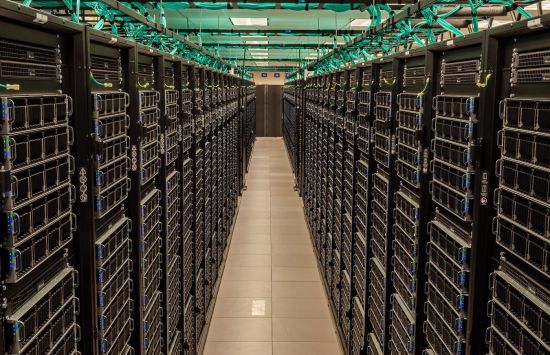
Democratizing AI research resources
We enable access to resources — like computational infrastructure, data, software, testbeds and training — to engage the full breadth of the nation's talent in AI innovation.

Trustworthy and ethical AI
We invest in the development of AI that is safe, secure, fair, transparent and accountable, while ensuring privacy, civil rights and civil liberties.
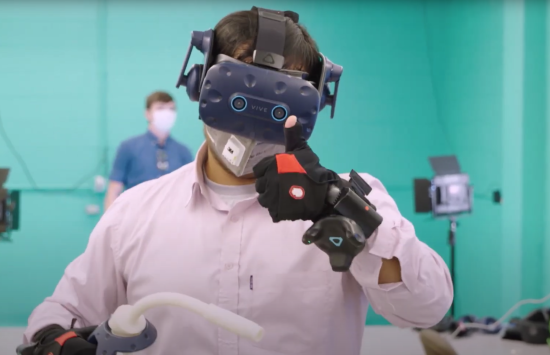
Education and workforce development
We invest in the creation of educational tools, materials, fellowships and curricula to enhance learning and foster an AI-ready workforce.
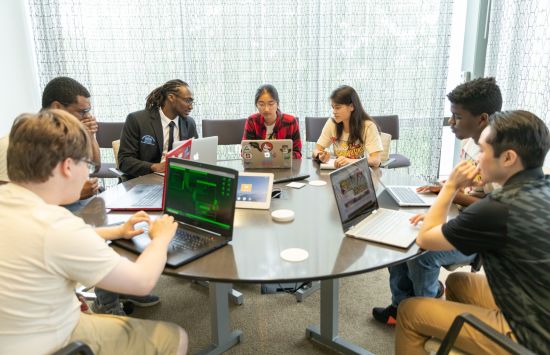
Partnerships to accelerate progress
We partner with other federal agencies, industry and nonprofits to leverage expertise; identify use cases; and improve access to data, tools and other resources.
National AI Research Institutes
Launched in 2020, the NSF-led National Artificial Intelligence Research Institutes program consists of 25 AI institutes that connect over 500 funded and collaborative institutions across the U.S. and around the world.
The AI institutes focus on different aspects of AI research, including but not limited to:
- Trustworthy and ethical AI.
- Foundations of machine learning.
- Agriculture and food systems.
- AI and advanced cybersecurity.
- Human-AI interaction and collaboration.
- AI-augmented learning.
Learn more by reading the 2020, 2021 and 2023 AI Institutes announcements or visiting the AI Institutes Virtual Organization.
National AI Research Resource Pilot
As part of the "National AI Initiative Act of 2020," the National AI Research Resource (NAIRR) Task Force was charged with creating a roadmap for a shared research infrastructure that would provide U.S.-based researchers, educators and students with significantly expanded access to computational resources, high-quality data, educational tools and user support.
The NSF-led interagency NAIRR Pilot will bring together government-supported, industry and other contributed resources to demonstrate the NAIRR concept and deliver early capabilities to the U.S. research and education community, including the full range of institutions of higher education and federally funded startups and small businesses.
The NAIRR Pilot is aimed to accelerate AI-dependent research such as:
- Societally relevant research on AI safety, reliability, security and privacy.
- Advances in cancer treatment and individual health outcomes.
- Supporting resilience and optimization of agricultural, water and grid infrastructure.
- Improving design, control and quality of advanced manufacturing systems.
- Addressing Earth and environmental challenges via the integration of diverse data and models.
Featured funding
Computer and Information Science and Engineering: Core Programs
Supports foundational and use-inspired research in AI, data science and human-computer interaction — including human language technologies, computer vision, human-AI interaction, and theory of machine learning.
America's Seed Fund (SBIR/STTR)
Supports startups and small businesses to translate research into products and services, including AI systems and AI-based hardware, for the public good.
Cyber-Physical Systems
Supports research on engineered systems with a seamless integration of cyber and physical components, such as computation, control, networking, learning, autonomy, security, privacy and verification, for a range of application domains.
Engineering Design and Systems Engineering
Supports fundamental research on the design of engineered artifacts — devices, products, processes, platforms, materials, organizations, systems and systems of systems.
Ethical and Responsible Research
Supports research on what promotes responsible and ethical conduct of research in AI and other areas as well as how to encourage researchers, practitioners and educators at all career stages to conduct research with integrity.
Expanding AI Innovation through Capacity Building and Partnerships
Supports capacity-development projects and partnerships within the National AI Research Institutes ecosystem that help broaden participation in artificial intelligence research, education and workforce development.
Experiential Learning for Emerging and Novel Technologies
Supports experiential learning opportunities that provide cohorts of diverse learners with the skills needed to succeed in artificial intelligence and other emerging technology fields.
Responsible Design, Development and Deployment of Technologies
Supports research, implementation and education projects involving multi-sector teams that focus on the responsible design, development or deployment of technologies.
Research on Innovative Technologies for Enhanced Learning
Supports early-stage research in emerging technologies such as AI, robotics and immersive or augmenting technologies for teaching and learning that respond to pressing needs in real-world educational environments.
Secure and Trustworthy Cyberspace
Supports research addressing cybersecurity and privacy, drawing on expertise in one or more of these areas: computing, communication and information sciences; engineering; economics; education; mathematics; statistics; and social and behavioral sciences.
Smart and Connected Communities
Supports use-inspired research that addresses communities' social, economic and environmental challenges by integrating intelligent technologies with the natural and built environments.
Smart Health and Biomedical Research in the Era of Artificial Intelligence
Supports the development of new methods that intuitively and intelligently collect, sense, connect, analyze and interpret data from individuals, devices and systems.


